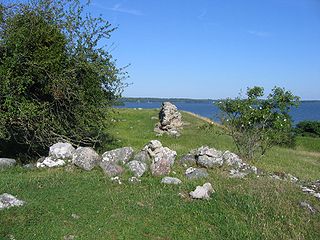Template:ROMAN description Surname conventions and laws vary around the world. This article gives an overview of surnames around the world. Template:TOC Roman Andrews Timatyos

Michael is a masculine given name derived from the Hebrew phrase מי כאל mī kāʼēl, “Who [is] like-El”, in Aramaic: ܡܝܟܐܝܠ. The theophoric name is a rhetorical question – "Who [is] like [the Hebrew God] El?", whose answer is “there is none like El”, or "there is none as famous and powerful as god". This question is known in Latin as Quis ut Deus?.
Ö, or ö, is a character that represents either a letter from several extended Latin alphabets, or the letter "o" modified with an umlaut or diaeresis. In many languages, the letter "ö", or the "o" modified with an umlaut, is used to denote the non-close front rounded vowels or. In languages without such vowels, the character is known as an "o with diaeresis" and denotes a syllable break, wherein its pronunciation remains an unmodified.

The Swedish nobility has historically been a legally and/or socially privileged class in Sweden, and part of the so-called frälse. The archaic term for nobility, frälse, also included the clergy, a classification defined by tax exemptions and representation in the diet. Today the nobility does not maintain its former privileges although family names, titles and coats of arms are still protected. The Swedish nobility consists of both "introduced" and "unintroduced" nobility, where the latter has not been formally "introduced" at the House of Nobility (Riddarhuset). The House of Nobility still maintains a fee for male members over the age of 18 for upkeep on pertinent buildings in Stockholm.
Karlsson is a Scandinavian patronymic surname meaning "son of Karl" or "Karl's son". It is one of the most common surnames in Sweden and has a number of alternative spellings. Apart from Karlsson, Carlsson is the most common spelling variation. Karlson and Carlson also exist, but are uncommon, as are Carlzon and Qarlsson.

Leif Jörgen Arvidsson Sevón is a Finnish jurist and judge.

Finland competed at the 1912 Summer Olympics in Stockholm, Sweden. The Grand Duchy of Finland was part of the Russian Empire at the time, but Finland's results are kept separate from those of Russia. In the Opening Ceremony Finland's team paraded under the national insignia flag of a Swedish-speaking female gymnastics club in Helsinki. 164 competitors, 162 men and 2 women, took part in 49 events in 10 sports.
Heikki Nousiainen is a Finnish film and television actor. Nousiainen made his acting debut in the television movie Henrik ja Perinlla in 1967. He entered film in 1971, as both a director and an actor in Saatanan radikaalit and has made over 40 Finnish film and TV appearances to date. He has worked with Finnish director Timo Koivusalo on a number of films such as Sibelius in 2003 and Kaksipäisen kotkan varjossa (2005), as well as in other Finnish movies and TV series. In 2006 he starred in 3 different films. Nousiainen is also known as playing President Urho Kekkonen in TV series Vallan miehet (1986), Presidentit (2006) and Piru ja peijooni (2008).

Kaarlo Anton "Kalle" Koskelo was a Greco-Roman wrestler from Finland who won the featherweight event at the 1912 Olympics. He then fought in World War I and Finnish Civil War, and in 1919 immigrated to the United States. He settled in Astoria, Oregon, where he became a prominent local businessman.
The Greco-Roman featherweight competition at the 1912 Summer Olympics was part of the wrestling programme.
In Finland, a person must have a surname and at least one given name with up to four given names permitted. Surnames are inherited either patrilineally or matrilineally, while given names are usually chosen by a person's parents. Finnish names come from a variety of dissimilar traditions that were consolidated only in the early 20th century. The first national act on names came into force in 1921, and it made surnames mandatory. Between 1930 and 1985, the Western Finnish tradition whereby a married woman took her husband's surname was mandatory. Previously in Eastern Finland, this was not necessarily the case.
Kari is either a male or female given name, or a surname.
Anttonen is a Finnish surname. Notable people with the surname include:

Metropolia University of Applied Sciences is the largest University of Applied Sciences in Finland situated in Helsinki metropolitan area. The university has four fields of study: culture, business, health care and social services, and technology. Teaching is also provided in English.

A saddle chair uses the same principles in its design as an equestrian saddle. It is equipped with a chair base on casters and a gas cylinder for adjusting the correct sitting height. The casters enable moving around and reaching out for objects while sitting. Some saddle chairs have backrests, but most do not.
Kaarlo is a Finnish given name. Notable people with the name include:

JudgePauliine Koskelo was appointed President of the Supreme Court of Finland in 2005. On 21 April 2015 she was elected as judge to the European Court of Human Rights by the Parliamentary Assembly of the Council of Europe.

Juho Evert Koskelo, was a Finnish-American singer and cellist. He was the most popular Finnish-American singer in the 1910s.
Anthoni is a Swedish, Danish, Finnish and Norwegian form of Antoni that is used in Finland, Denmark, Sweden, Norway, Republic of Karelia, Estonia and Greenland. It is a given name and surname. Notable people with the name include the following:
Karri is a given name and surname.








